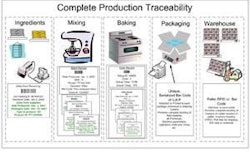Regain after weight loss is widely reported in humans, but there is little information on this phenomenon in dogs. The study aimed to determine long-term success of a weight loss regime and factors linked with regain. Thirty-three obese dogs that had successfully lost weight were enrolled. After weight loss, dogs had been switched to a maintenance regime, and follow-up weight checks were performed periodically. After a review of cases that had completed their weight program, a follow-up check was conducted, where dogs were reweighed and information collected on current feeding practices.
Median duration of follow-up was 640 days (119–1,828 days). Fourteen dogs (42%) maintained weight, three (9%) lost more than 5% additional weight and 16 (48%) gained more than 5% weight. Dogs fed a purpose-formulated weight loss diet regained less weight than those switched to a standard maintenance diet. Energy intake at the time of follow-up was significantly higher in dogs fed a standard maintenance diet, compared with those that had remained on a weight loss diet.
These results suggest weight regain occurs in about half of dogs after successful weight loss. Long-term use of a purpose-formulated weight management diet can significantly limit regain in the follow-up period, likely by limiting food intake.
Source : A.J. German et al., 2012. Long-term follow-up after weight management in obese dogs: the role of diet in preventing regain. Vet J 192: 65–70. doi: 10.1016/j.tvjl.2011.04.001


















